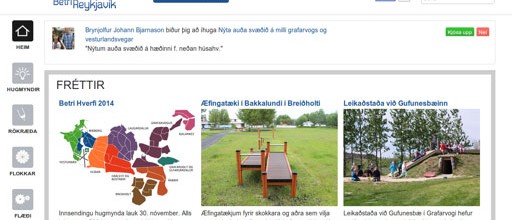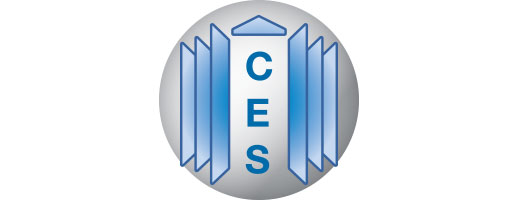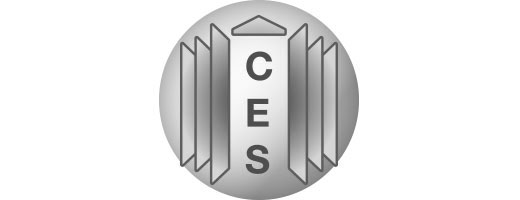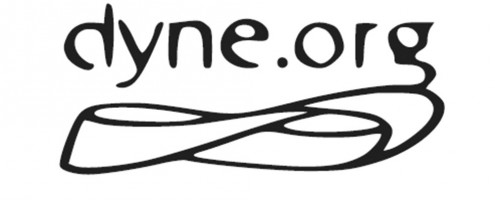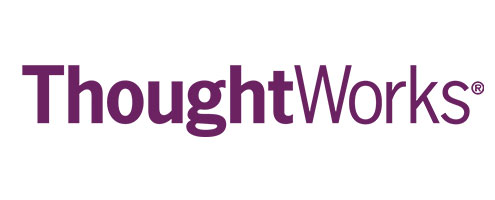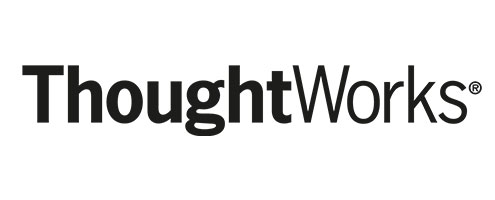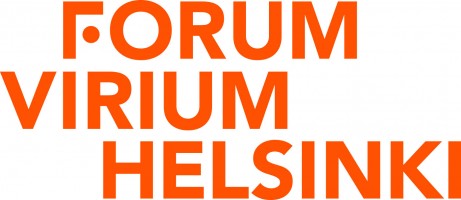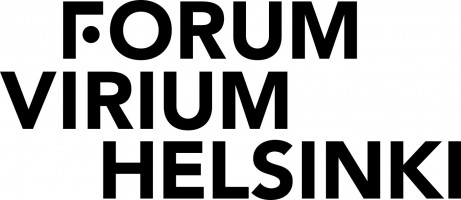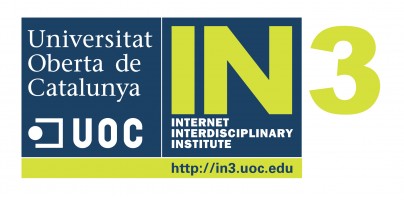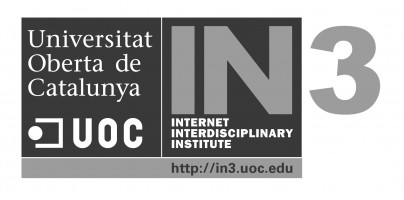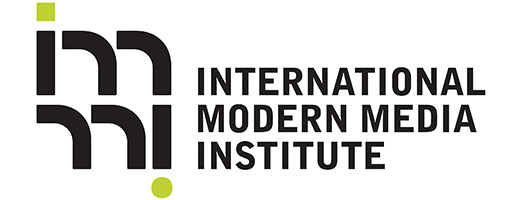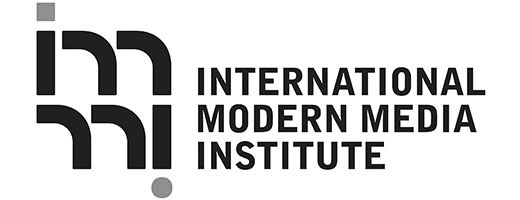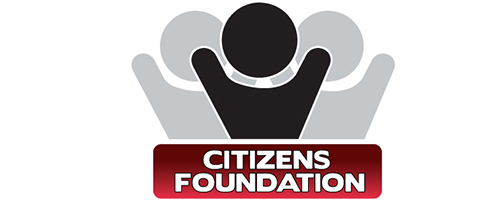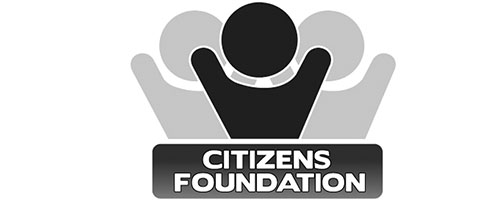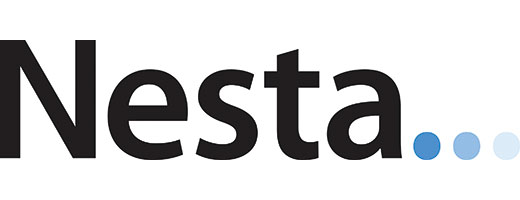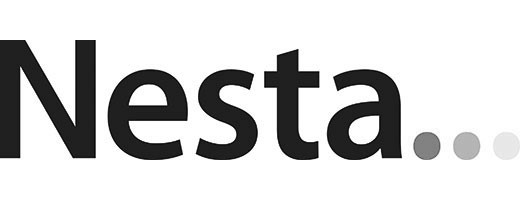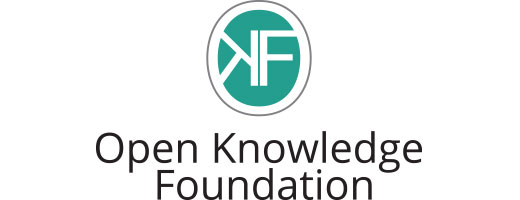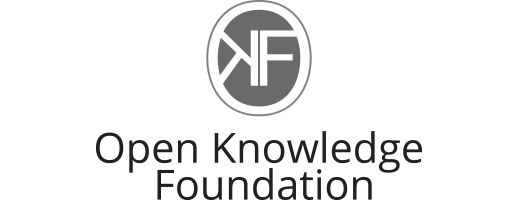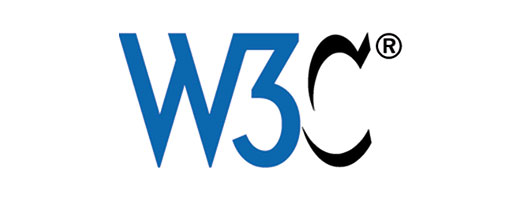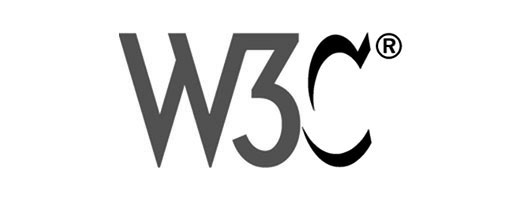Your Priorities helps groups of people share ideas and push the most popular ideas into a formal governing process with the council of the city of Reykjavik. It allows people to submit new ideas, debate and discuss ideas and vote ideas up or down based on their priorities and thus enabling people to be active co-creators in their communities.
The main success of Better Reykjavik is based on three very important elements. The app is easy to use, access and share. People who have used it are inspired to be more involved in their communities because there are actual results from using it.
Tools for co-operation
We live in a world where instant gratification is a great motivator for action by the general public. Results are based on commitment from the council of the city of Reykjavik to process the top 5 ideas every month. Some of the ideas are implemented and some or not, the training of both the bureaucrats and the general public to have direct channels to facilitate changes by and for the people in the local communities are of great importance. Some of the budget for each city pocket are now voted and prioritised via the Better Reykjavik platform.
Better Iceland is a platform that the political movement the Pirate Party pledged to use as a bridge between the Parliament and the public, in order to serve directly the will of the people, if they would be entrusted to serve in Parliament. The Pirate Party is currently serving with 3 MP´s out of 63 and they hope to inspire parliamentarians from the entire political spectrum to use the platform as guidelines for what the general public in Iceland finds to be the most urgent issues to be discussed and ratified in the Parliament.
Both these platforms are created by the Citizen Foundation, partner in the D-CENT project and have been important tools in the aftermath of the crisis in Iceland in order to use the crisis to change Icelanders attitude towards citizen participation.
In order to inspire politicians and policy makers, the chairperson for IMMI another D-CENT partner in Iceland decided to dive into the belly of the beast in order to understand how the system and the legislative process works in order to legalise citizen participation at the highest level, with changes in the constitution of Iceland in order to move the power back to the peoples.
Openness and participation
In the wake of the crisis in Iceland 2008, the people of Iceland understood that they had no democratic tools to get rid of incompetent government except to revolt. During the protests there were four demands for change. One was to have a new constitution written for and by the people of Iceland. Thus began an experiment with serious openness to calls for participation of the people in Iceland to help shape the new constitution.
Unfortunately the leaders of all the parties serving except for the one from the Movement, didn’t have the balls to take the fight for ensuring the ratification of the new constitution just before the parliament was dissolved in 2013 to make way for elections that were due, and this is why the people of Iceland are still faced with a choice of suppression like we are witnessing today in Iceland or revolt.
Search for new tools and systems
The timing of the D-CENT project for the future of Iceland is perfect, there is a new crisis looming, not financial this time but of ethics and there are clear demands for new democratic paths to run the country. It is important to remind us what the word and the origin of the democracy means: The Rule of the People (mob). So we need to create new systems that put the tools and the inspiration to use the tools in the hands of future generations.
The future vision for D-CENT in Iceland is that we have a tool that is scalable, easy to use, fits within the political ambiance of Iceland, where it is possible to transform into a society of co-creation. There is much focus on transparency and access to information that belongs in the public domain. In order to use that knowledge we need the tools to make choices based on our knowledge. D-CENT can be that tool.
Direct democracy training needs to happen early, schools play an important role in training youth in learning how to take responsibility and find its role and voice within its community. There are only 325.000 people in Iceland. It has its ups and downs, the Up is that the system is small compared to other countries, easy access to all policy makers and it is easy to reach critical mass. Right now there is buzz around the issues addressed in the D-CENT project vision for a new standard, new ways to be part of our societies.

